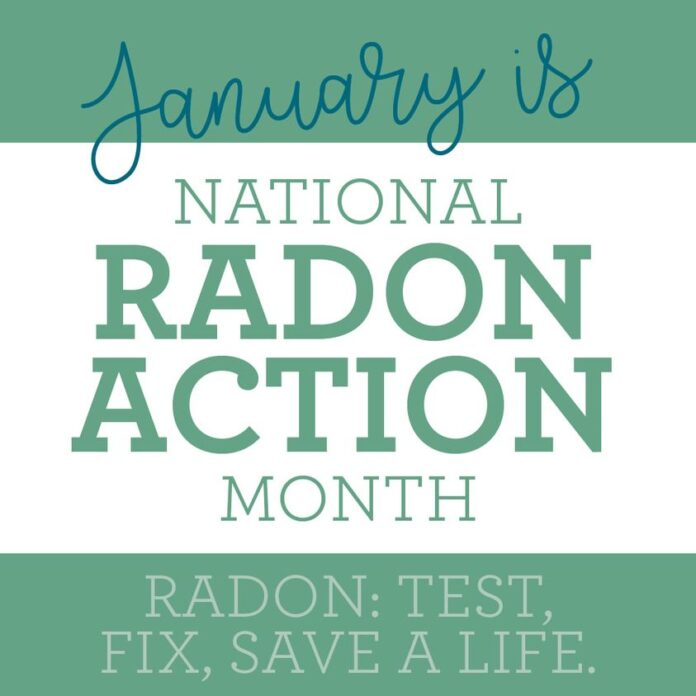MONTGOMERY, Ala. – Many Alabama residents are spending more time inside their homes because of the COVID-19 pandemic. This means children and adults are exposed to indoor air quality problems that include radon.
January has been designated Radon Action Month. Radon is a naturally occurring radioactive gas that can cause lung cancer. Radon is the second leading cause of lung cancer in the United States and the leading cause of lung cancer in nonsmokers. Radon claims an estimated 21,000 lives in the U.S. a year, according to the Environmental Protection Agency (EPA).
“The best time to test for radon is during the colder months when your home is closed and radon levels are likely to build to their highest concentrations,” David Turberville, director of the Office of Radiation Control, Alabama Department of Public Health (ADPH), said. “We encourage you to test your home by ordering a radon test kit.”
Radon appears to occur most frequently in homes across the Tennessee Valley and in the foothills of the Appalachian Mountains from Jefferson and Shelby counties through Cleburne County. High levels of indoor radon have also been found in other areas of Alabama. Because radon is a colorless, odorless gas that occurs naturally in soil and rocks through the breakdown of uranium, testing is the only way to know the radon level in a home.
Radon test kits weigh only a few ounces and cost about $25. Testing for radon should be done on the lowest level of the home on which the occupants spend time, so a finished basement or a basement containing a workshop is a good place to test. Kitchens are not recommended testing areas.
“Testing directions are provided on the kit, and it only takes a few days to obtain a sample,” Turberville said. “It is easy to perform a radon test on your home.”
While radon test kits are available at many larger home improvement stores, Alabama homeowners can order kits online through the National Radon Program Services at https://sosradon.org/.A free test kit is also available from www.alabamapublichealth.gov/radon/radon-testing.htmlwhile supplies last.
If test results are above the levels recommended by the EPA and the ADPH, homeowners should consider installing a radon remediation system. Systems generally cost between $1,500 and $2,500, depending on the square footage of the residence and the difficulty in finding a suitable pathway for a radon removal pipe. Homes with a crawl space, no gravel under the slab, or a completely finished lower level sometimes cost more.
More information about protecting yourself and your family is available from www.alabamapublichealth.gov/radon/and from “A Citizens Guide to Radon,” which is available at www.epa.gov/sites/production/files/2016-12/documents/2016_a_citizens_guide_to_radon.pdf.




















